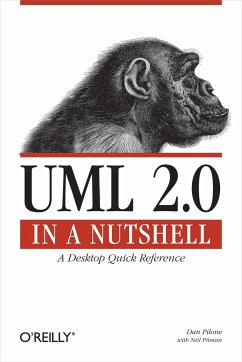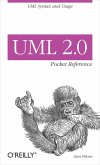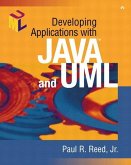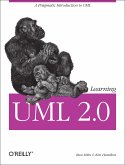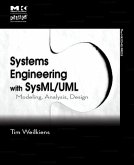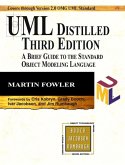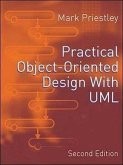System developers have used modeling languages for decades to specify, visualize, construct, and document systems. The Unified Modeling Language (UML) is one of those languages. UML makes it possible for team members to collaborate by providing a common language that applies to a multitude of different systems. Essentially, it enables you to communicate solutions in a consistent, tool-supported language.
Today, UML has become the standard method for modeling software systems, which means you're probably confronting this rich and expressive language more than ever before. And even though you may not write UML diagrams yourself, you'll still need to interpret diagrams written by others.
UML 2.0 in a Nutshell from O'Reilly feels your pain. It's been crafted for professionals like you who must read, create, and understand system artifacts expressed using UML. Furthermore, it's been fully revised to cover version 2.0 of the language.
This comprehensive new edition not only provides a quick-reference to all UML 2.0 diagram types, it also explains key concepts in a way that appeals to readers already familiar with UML or object-oriented programming concepts.
Topics include:
- The role and value of UML in projects
- The object-oriented paradigm and its relation to the UML
- An integrated approach to UML diagrams
- Class and Object, Use Case, Sequence, Collaboration, Statechart, Activity, Component, and Deployment Diagrams
- Extension Mechanisms
- The Object Constraint Language (OCL)
If you're new to UML, a tutorial with realistic examples has even been included to help you quickly familiarize yourself with the system.
Hinweis: Dieser Artikel kann nur an eine deutsche Lieferadresse ausgeliefert werden.
Today, UML has become the standard method for modeling software systems, which means you're probably confronting this rich and expressive language more than ever before. And even though you may not write UML diagrams yourself, you'll still need to interpret diagrams written by others.
UML 2.0 in a Nutshell from O'Reilly feels your pain. It's been crafted for professionals like you who must read, create, and understand system artifacts expressed using UML. Furthermore, it's been fully revised to cover version 2.0 of the language.
This comprehensive new edition not only provides a quick-reference to all UML 2.0 diagram types, it also explains key concepts in a way that appeals to readers already familiar with UML or object-oriented programming concepts.
Topics include:
- The role and value of UML in projects
- The object-oriented paradigm and its relation to the UML
- An integrated approach to UML diagrams
- Class and Object, Use Case, Sequence, Collaboration, Statechart, Activity, Component, and Deployment Diagrams
- Extension Mechanisms
- The Object Constraint Language (OCL)
If you're new to UML, a tutorial with realistic examples has even been included to help you quickly familiarize yourself with the system.
Hinweis: Dieser Artikel kann nur an eine deutsche Lieferadresse ausgeliefert werden.

